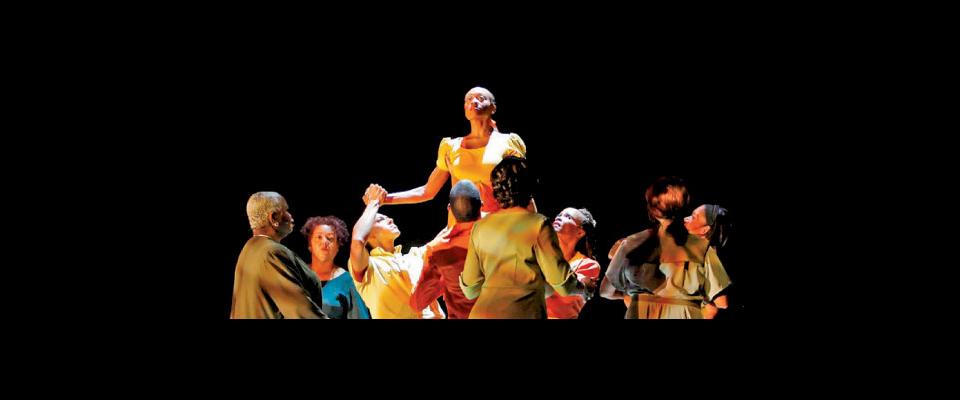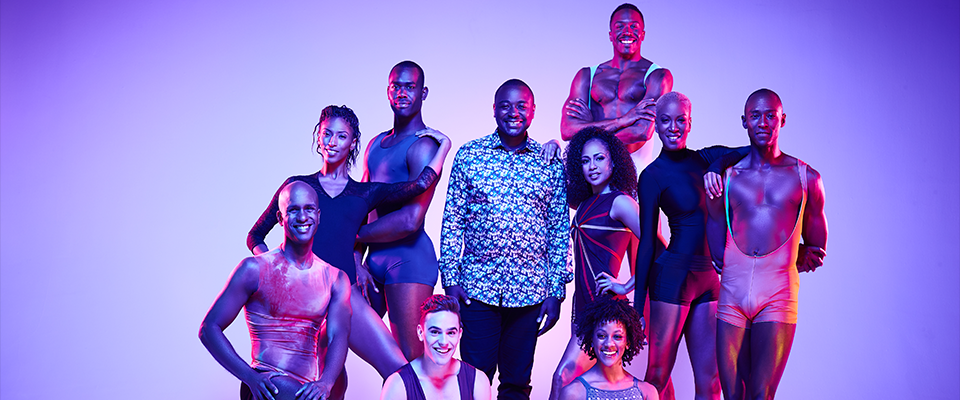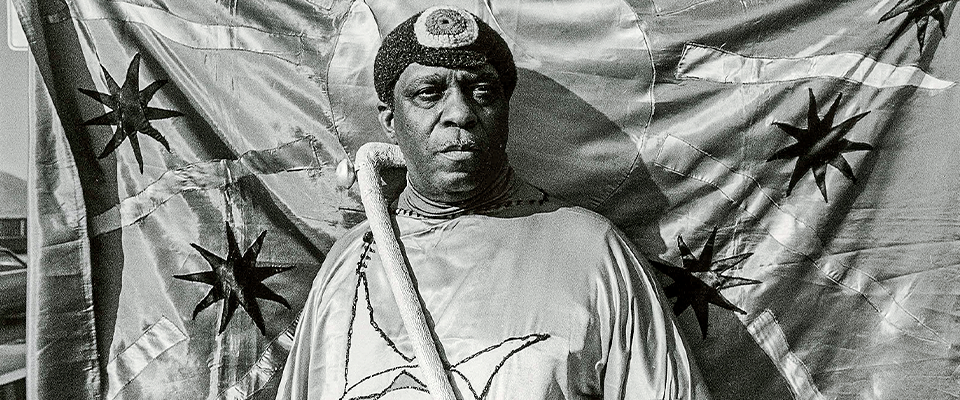March is the cruelest month for Kristin Colvin Young, stage manager of the Alvin Ailey American Dance Theater. Every year around this time the troupe performs at Berkeley’s Zellerbach Hall, and they always join the Cal Performances stage crew for a huge barbecue in the theater’s courtyard.
This year’s cookout was held during the Saturday matinee on March 7. The dancers start eating at about 3 p.m., filtering in over the next two hours as soon as their part of the performance is finished.
Everyone, that is, except Young. “I can smell everything coming through the window, but I’m tied to the control board until the performance is over,” she says. “It’s just mean!”
Everywhere it travels, the Ailey company always takes along a full complement of grills, smokers, and deep fryers. At each stop, the performers and crew chow down on barbecue, prepared from time-tested recipes by Senior Director of Performance and Production Calvin Hunt and Technical Director E.J. Corrigan.
“But Berkeley is special,” says Corrigan. “At other places, it’s just a couple of burgers and steaks on a grill. But at Berkeley it’s a two-day event, where we cook for a whole day and pig out the whole next day. Everyone at the theater loves the company, and we love them, too.”
The cookout features ribs, chicken, brisket, shrimp, salmon, turkeys, bacon, steaks, ducks, pan-fried trout, suckling pigs, crispy brick chicken, marinated vegetables, and frog legs. “Sometimes you get carried away,” says Cal Performances master carpenter Danny Nilles. “Last year we dipped the frogs’ legs in batter, deep-fried them, and arranged them in various dancer’s poses. They were like little figures on a wedding cake.”
But this year the Ailey folks planned something special: an entire roasted goat. “It’s for [Cal Performances Director] Robert Cole, in honor of his retirement,” says Hunt. “We’re going to send him off with a goat!”
Berkeley is where the Ailey cookout tradition began, with just one tiny grill. “It was back in 1988,” says Corrigan. “Some of us were wondering where they could find a bite to eat, and somebody said, ‘Hey, we got this little Weber back here!’ That first year it was just burgers. We were all laughing at the way people were flipping them. It was so much fun.”
For the first few years the only participants were the Ailey and Cal Performances stage crews. “Then the dancers started joining in,” says Hunt. “Last year, we had more than 170 people. We never dreamed it would get so big.”
Niles, Hunt, and Corrigan supervise the cookout, while Richard Brown, who runs the museum café at Museum of Contemporary Art San Diego in La Jolla, is in charge of deep-frying the birds.
Brown, who flies up from San Diego every year for the event, has known the Ailey troupe since 1990, when they met while waiting in line at the airport in Moscow. The troupe was there to give a series of performances, and Brown was catering some state dinners as part of a cultural exchange. “They were really missing that good old down-home American food, so I cooked some for them. And we’ve been friends ever since.”
The diners include dancers, stage crew, Cal Performances staffers, their kids, and, invariably, a handful of strangers. Last year, some ROTC students who were passing by and a couple of homeless people who wandered in off the street joined the feast.
“It depends on their attitude,” Corrigan says. “If it’s ‘Hey, what’s going on here?’ they’re welcome to join us. But if somebody shows up with a doggie bag, they won’t get anything.”
The food preparation begins three days earlier, as soon as the Ailey troupe hits town. Hunt, Nilles, and Corrigan spend Wednesday at Costco and the Berkeley Bowl, loading up on ribs, chickens, steaks, shrimp, salmon, and vegetables. On Thursday they rub down the meat, using Hunt’s special recipe, and let it sit overnight.
On Friday the smoking begins. “The trick is to keep the temperature below 240 degrees and cook it slowly,” said Corrigan. “Some people see the pink and think the meat isn’t done, but it’s just the smoke penetrating the meat and changing the color chemically.”
They also make a tomato-based barbecue sauce, but nobody uses it. “You don’t need it,” Corrigan says. “Some people will cook something in the oven, throw some sauce on it, and call it barbecue. But barbecue to us is the eight hours of smoke we put the meat through, not the sauce.”
On Saturday morning Hunt, Corrigan, Nilles, and Brown are up at the crack of dawn, grilling for hours before the afternoon matinee begins. Finally, it’s chow time, which creates a delicious dilemma for the dancers, who still have another performance to do that night.
“You have to be careful, much as you’d like to eat everything in sight,” says Guillermo Asca, a 15-year veteran with the company. “You have to develop a strategy.” His is to eat a little bit and then squirrel away a huge plate for after the evening performance.
Glenn Allen Sims, who has been with the group for 12 years, employs a different tactic. “I try to maintain a balance between protein, starch, and vegetables. It’s all about that food combination thing.”
After the evening performance, the troupe packs up the sets, costumes, and grilling gear, and it’s off to the next city. But they say nothing compares with Berkeley. “The tradition in Berkeley has taken on a life of its own,” says Corrigan. “Even in years where there’s pouring rain, we just move everything under the overhanging roof in the courtyard and have the cookout anyway.”
“Everyone is proud of it,” says Hunt. “Even our board members fly out from the east coast for it. The real ingredients are the people at Cal Performances, who welcome and embrace us every year. It’s very special for us, and I think it’s special for them, too.”





















